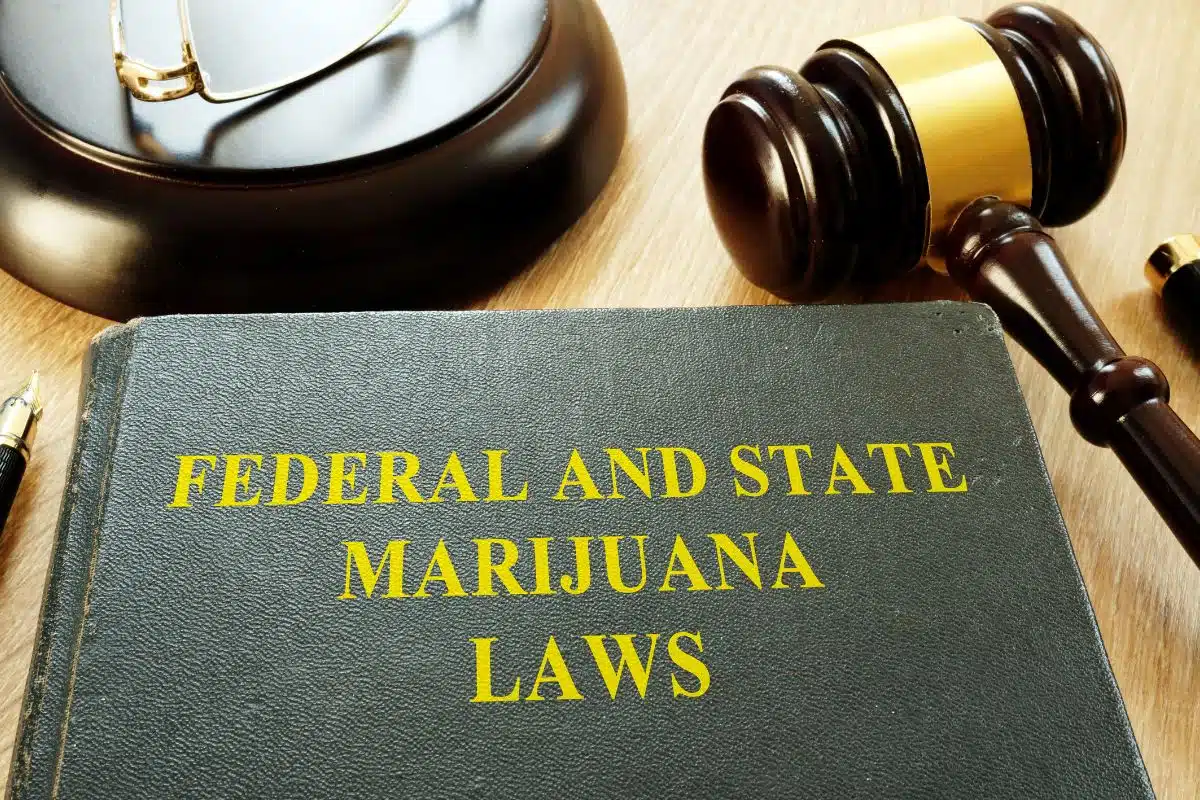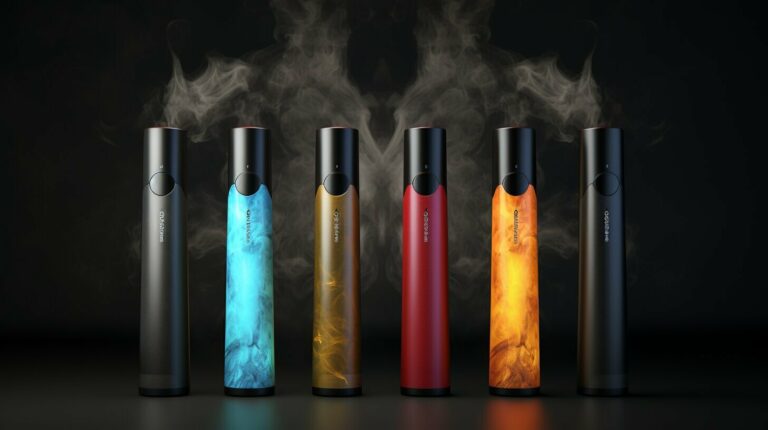Can You Green Out on Delta-8 THC? Understanding the Risks and Effects
Did you ever stumble upon Delta-8 THC? It feels like the easier-going sibling of the infamous Delta-9 found in marijuana, without packing the same wallop. Ever wonder if it’s possible to overindulge without ending up feeling like you’re spinning out of control? Well, you might want to think that over. Despite Delta-8 THC being more mellow, pushing the limits can still make you feel woozy and unsettled. This sly buzz can surprise you with its strength if you’re not watchful. So, **who should perk up their ears?** Those diving into the Delta-8 THC waters, this message is tailored for you. Stay here to discover how to navigate the Delta-8 waves with ease, promising only joyous moments ahead.
- Understanding Delta-8 THC
- Legality and Regulation
- Delta-8 THC Products
- Usage and Dosage
- Potential Effects and Benefits
- Risks and Side Effects
- Usage Considerations for Specific Groups
- Consumer Awareness
- Cultural and Market Trends
- Detection and Testing
- Delta-8 THC Experience
- Frequently Asked Questions
- What are the common symptoms of greening out?
- How can you recover from greening out quickly?
- Are there any lasting effects from greening out?
- Why might someone experience greening out after consuming a small amount of THC?
- Is it possible to experience high intensity effects from delta-8 THC?
- What duration is typical for the effects of delta-8 THC to wear off?
Understanding your reaction to Delta-8 THC can be critical, especially as consumer interest and accessibility are on the rise. While research on Delta-8 THC is still emerging, anecdotal evidence suggests that, like other cannabinoids, it can lead to a green out if consumed irresponsibly. Your body’s chemistry and tolerance play significant roles in determining your experiences with psychoactive compounds. It’s essential to approach Delta-8 THC with the same caution as any other cannabinoid to avoid adverse effects.
Understanding Delta-8 THC
Before diving into the specifics of Delta-8 THC, it’s essential for you to grasp its unique chemical profile, how it compares to Delta-9 THC, and where it’s typically sourced. This understanding forms the basis for recognizing both its potential effects and legal status.
Chemical Structure and Properties
Delta-8 THC, short for delta-8 tetrahydrocannabinol, is a cannabinoid found naturally in the cannabis sativa plant. Its chemical structure is similar to delta-9 tetrahydrocannabinol (Delta-9 THC), the primary psychoactive compound in cannabis – both hold a chain of carbon atoms, but Delta-8 THC has a double bond on the eighth carbon, while Delta-9 has it on the ninth.
Delta-8 vs Delta-9 THC
When comparing Delta-8 and Delta-9 THC, their chemical differences lead to varying effects on your body. Delta-8 THC is often described as less potent than Delta-9. This can mean a reduced risk of psychoactive effects such as anxiety and paranoia. Although they interact with the same cannabinoid receptors, Delta-8 THC tends to have a more stable and clearer user experience.
Sources of Delta-8: Hemp and Cannabis
You can find Delta-8 THC in both hemp and cannabis plants, but it is typically present in very low amounts. It is usually manufactured from hemp-derived CBD, making it more accessible in areas where traditional cannabis products are not legal. However, since producing Delta-8 THC can involve synthetic alteration of CBD, there is ongoing debate about the legality and safety of these practices.
Legality and Regulation

Understanding the legality and regulation of Delta-8 THC is crucial, as it varies greatly from one place to another and is influenced by several key pieces of legislation and regulatory agencies.
2018 Farm Bill Impact
The 2018 Farm Bill had a significant impact on the legality of hemp-derived compounds by removing hemp, defined as cannabis with less than 0.3% Delta-9 THC, from the list of controlled substances. This means that Delta-8 THC, also a cannabinoid found in the hemp plant, became federally legal, as it is commonly sourced from hemp-derived CBD, assuming the final product also contains less than 0.3% Delta-9 THC.
FDA’s Stance on Delta-8
Despite the federal legalization of hemp, the FDA has not specifically legalized Delta-8 THC for consumption. There’s an increasing concern from the FDA regarding the safety of Delta-8 THC products, which are not yet approved, since they are often marketed for therapeutic or medical uses without approval.
State and Federal Legal Landscape
You’ll find that the legal landscape for Delta-8 THC is a complex one, presenting a legal gray area. While federally legal under the terms of the 2018 Farm Bill, individual states may classify Delta-8 in various ways. Some have aligned with federal law, others have explicitly made Delta-8 illegal, and many more navigate a murky in-between where state regulations are not yet clear on its status, often awaiting further legislation or clarification.
Delta-8 THC Products
| Product Type | Description | Onset Time | Duration | Best For |
|---|---|---|---|---|
| Vape Cartridges | Pre-filled carts with Delta-8 THC distillate, used with vape pens. | 1–5 minutes | 1–3 hours | Fast relief, discreet use, adjustable dosing. |
| Disposable Vapes | All-in-one vape devices pre-charged and filled with Delta-8 oil. | 1–5 minutes | 1–3 hours | Beginners and convenience-focused users. |
| Gummies / Edibles | Delta-8 infused candies, brownies, or chocolates. | 30–90 minutes | 4–8 hours | Long-lasting effects, stronger body high. |
| Tinctures / Oils | Liquid Delta-8 extract taken sublingually (under the tongue). | 15–30 minutes | 2–4 hours | Precise dosing, smoke-free, discreet. |
| Capsules / Pills | Pre-measured Delta-8 doses in capsule form. | 30–90 minutes | 4–8 hours | Consistent dosing, easy to use. |
| Pre-Rolls / Flower | Hemp flower infused or sprayed with Delta-8 distillate, rolled for smoking. | 5–10 minutes | 2–4 hours | Traditional smoking experience with mild psychoactive effects. |
| Concentrates (Dabs) | Highly potent Delta-8 extracts (wax, shatter, diamonds). | Seconds | 1–3 hours | Experienced users seeking stronger, fast-hitting effects. |
| Topicals (Creams, Balms) | Applied to the skin for localized relief; non-psychoactive. | N/A | 2–4 hours | Pain and inflammation relief without getting high. |
| Beverages | Delta-8 infused drinks like seltzers, teas, or energy drinks. | 30–60 minutes | 3–5 hours | Refreshing, social, and discreet consumption method. |
Delta-8 THC has gained popularity for its similarity to delta-9 THC, the main psychoactive component in cannabis. You may find a wide array of delta-8 THC products, from edibles to concentrates, with varying effects and potency.
Varieties of Delta-8 Products
Delta-8 THC is available in numerous product forms, each catering to your preference for consumption method and experience. Edibles, such as gummies, are popular for their ease of dosing and discrete nature. If you prefer a quicker onset of effects, vaping might suit you; vapes and carts are widely used for their convenience and portability. Tinctures and oils offer versatility, as they can be administered under the tongue or added to food. For those who favor traditional methods, Delta-8 infused flowers are also an option, although they tend to be less common than delta-9 rich strains. Lastly, concentrates appeal to those seeking a more potent effect, as they contain a higher concentration of delta-8 THC.
- Edibles: Slow onset, longer-lasting effects
- Vapes/Carts: Fast onset, easy to use
- Tinctures/Oils: Versatile, adjustable dosing
- Flowers: Traditional consumption
- Concentrates: High potency
Product Safety and Lab Testing
Your safety is paramount when selecting delta-8 THC products. Always ensure the products you choose undergo rigorous lab testing from reputable labs. This guarantees not only the precise delta-8 content but also verifies the absence of harmful contaminants. Quality product manufacturers like Delta Extrax prioritize CO2 extraction methods, providing a cleaner and more eco-friendly product. Look for crystal-clear packaging that lists ingredients, sourcing, and provides access to lab reports. This transparency is key to ensuring a quality product and ultimately, a safer experience.
- Lab Reports: Essential for verifying safety and content.
- CO2 Extraction: Sign of a cleaner product.
- Packaging: Should be transparent and informative.
Remember to choose products from reputable brands that emphasize quality control and safety through transparent lab testing results.
Usage and Dosage
When considering the use of Delta-8 THC, it’s essential to focus on finding the right dosage and understanding the various methods of ingestion. Your experience with Delta-8 can vary widely depending on these factors, in addition to your individual tolerance and the potency of the product.
Appropriate Dosage Guidelines
Dosage is crucial to ensuring a pleasant experience with Delta-8 THC. Start with a low amount, especially if you are new to Delta-8. Products commonly range from 5mg to 25mg per serving. Begin with the lower end of this spectrum and pay attention to the THC concentration on product labels. It is typically recommended to wait at least two hours before considering an additional dose, to allow full effects to manifest.
Methods of Ingestion
Delta-8 THC can be ingested in several ways, each affecting onset and duration differently. The most common methods include:
- Edibles: which have a gradual onset of effects, usually taking 1 to 2 hours to peak.
- Vaporizers: offering a fast-acting experience, with effects often felt within minutes.
- Tinctures: which can be absorbed sublingually, producing effects quickly, often within 15 to 30 minutes.
Tolerance and Potency Considerations
Your tolerance level influences how much Delta-8 THC you should consume. Regular users may find they require higher doses to achieve the desired effects. Potency, on the other hand, refers to the strength of the Delta-8 THC in the product. A higher potency indicates a stronger effect, so adjust your dosage accordingly. Remember to consider the thc concentration when assessing the potency, as it directly correlates with the strength of effects.
Potential Effects and Benefits

Delta-8 THC is gaining attention for its reputation as a milder alternative to Delta-9 THC, the main psychoactive compound in cannabis. This cannabinoid may offer a less intense high and a variety of therapeutic benefits.
Psychoactive Effects
Delta-8 THC can induce psychoactive effects similar to Delta-9 THC but typically at a lower potency. You might experience a euphoric high with feelings of euphoria and sedation, potentially lessening anxiety and stress. This milder high can make Delta-8 THC a preferable choice if you seek a calmer experience or have a lower tolerance to cannabinoids.
Therapeutic Uses
Research has indicated that Delta-8 THC may have several therapeutic uses, potentially aiding in alleviating symptoms of sleep disorders, depression, and even chronic pain. Its interaction with the endocannabinoid system allows for possible stress relief and mood regulation, although these effects require more research for concrete conclusions.
Pain Relief and Other Benefits
Delta-8 THC’s array of benefits may extend to pain relief, especially for chronic pain conditions where conventional treatments may fall short. Additionally, you could experience improved appetite and aid with sleep problems, thanks to its sedative properties. However, as with any cannabinoid, your experience with these benefits may vary.
Risks and Side Effects
| Category | Details |
|---|---|
| Short-Term Side Effects | Dry mouth, red eyes, dizziness, drowsiness, impaired coordination, short-term memory issues. |
| Psychoactive Effects | Produces a milder “high” than Delta-9 THC, but can still cause anxiety or paranoia in some users. |
| Overconsumption Risks | High doses may lead to confusion, extreme fatigue, increased heart rate, or nausea. |
| Respiratory Risks | Vaping or smoking Delta-8 can irritate lungs, especially for those with asthma or breathing issues. |
| Digestive Issues | Edibles may cause delayed effects leading to accidental overconsumption, nausea, or stomach upset. |
| Drug Interactions | May interact with medications for blood pressure, heart conditions, or mental health. |
| Long-Term Risks | Limited research; potential for dependency, tolerance buildup, and unknown long-term health impacts. |
| Legal Concerns | Legality varies by state/country; some regions ban Delta-8 due to safety and regulatory concerns. |
| Product Safety | Lack of FDA regulation means products may contain contaminants, residual solvents, or inaccurate la |
When considering the use of Delta-8 THC, it’s important to be aware of the potential risks and side effects that come with its consumption. Just like its closely related compound, Delta-9 THC, Delta-8 can cause adverse reactions and interact with mental health and medications.
Common Adverse Reactions
Delta-8 THC can lead to several common side effects, which vary based on individual tolerance and dosage. You might experience:
- Nausea: A feeling of sickness that can lead to vomiting.
- Dizziness: A sensation of unsteadiness and lightheadedness.
- Dry Mouth: Reduced saliva production, resulting in a parched feeling in the mouth.
These symptoms can be milder or more intense, depending on your body’s reaction to Delta-8 THC.
Negative Impact on Mental Health
Mental health can be affected after using Delta-8 THC. Some individuals report:
- Paranoia: An irrational feeling of being watched or targeted.
- Anxiety: Increased feelings of worry and nervousness.
These reactions suggest that if you have a predisposition to mental health issues, Delta-8 THC may exacerbate your symptoms.
Interactions with Medications
Delta-8 THC has the potential to interact with prescription medications. It can:
- Alter how your body processes various drugs.
- Influence the effectiveness of blood pressure medications, leading to irregularities in heart rate.
It’s crucial to consult with a healthcare professional before combining Delta-8 THC with any medications to avoid negative interactions.
Usage Considerations for Specific Groups

When considering the use of Delta-8 THC, it’s important to understand the potential impacts on vulnerable demographics, such as children, pets, and older adults. Their bodies process substances differently, and what may be a mild effect for one group could be dangerous for another.
Impacts on Children and Teens
Children and teens are at increased risk for adverse effects from Delta-8 THC. Their developing brains are more susceptible to psychoactive substances, and exposure could lead to cognitive impairments or emotional issues. Non-medical use of Delta-8 THC by minors is advised against, and products containing this compound should be kept out of reach to prevent accidental ingestion.
Delta-8 THC Use in Pets
Pets, particularly dogs and cats, may be extremely sensitive to THC, even in small amounts. If your pet ingests Delta-8 THC, they could experience toxicity. Symptoms in pets can include lethargy, difficulty walking, or more severe signs like trembling or convulsions. It’s vital to ensure any Delta-8 products are stored securely away from your pets.
Considerations for Older Adults
As you age, your metabolism slows down, which can affect how your body processes substances like Delta-8 THC. Older adults may also have a range of preexisting conditions or be on medications that could interact negatively with THC. If you’re an older adult or caring for one, consult with a healthcare provider before using Delta-8 THC to avoid potential health risks.
Consumer Awareness
When navigating the world of delta-8 THC, it’s crucial for you to be able to identify quality products and understand the labeling and packaging. This knowledge not only ensures your safety but also guarantees that you are making well-informed decisions about the cannabinoid products you choose to consume.
Identifying Quality Delta-8 Products
Reputation and Source: Start by considering the reputation of the seller—whether it’s an online storefront or a local gas station. High-quality delta-8 products are often available from reputable sources that provide detailed product information and customer reviews.
- Lab Testing: Look for products that have been third-party lab tested; this testing should confirm the product’s cannabinoid content and the absence of harmful substances. Reputable labs will test for the presence of synthetic additives and ensure the delta-8 THC is derived from natural sources.
- Appearance and Smell: High-quality delta-8 should have a clear appearance and a clean smell, indicating proper processing and refinement.
Understanding Product Labels and Packaging
Information: The packaging and labels of delta-8 products provide crucial information for your safety and the product’s efficacy. It’s essential that you:
- Review the product label for a full list of ingredients to avoid synthetic compounds.
- Check the expiration date to ensure freshness.
Compliance: Ensure that the packaging complies with state and federal regulations, which can offer insight into the product’s legality and quality.
- Labels should include the delta-8 THC content and other cannabinoids present.
- Proper labels will also indicate if the product is a full-spectrum, broad-spectrum, or isolate extract.
By prioritizing these aspects when selecting your delta-8 products, you’re taking a significant step in guaranteeing a safer and more enjoyable experience with this cannabinoid.
Cultural and Market Trends
Recent shifts in the cannabis industry have seen a surge in the popularity of Delta-8 THC, reflecting changing consumer demands and the introduction of alternative cannabinoids in the market.
Delta-8 Popularity and Demand
You may notice that Delta-8 THC has quickly gained traction, particularly in head shops and gas stations, where its availability has grown. The demand for this compound is driven by its legal status in certain areas and its purported milder psychoactive effects compared to Delta-9 THC. Detailed analysis on the extraction of Delta-8 THC reveals an increasing market, pointing to consumers’ appetite for novel cannabis products.
Alternative Options for Consumers
In your search for alternatives within the cannabis marketplace, Delta-8 THC is often thought of as a legal alternative to traditional THC. With the rise of alternative cannabinoids and products, consumers now have a wider selection. The proliferation of these alternatives in various outlets, including head shops and gas stations, signifies shifting market trends toward more accessible cannabis-related products. This variety caters to a growing consumer base seeking out diverse experiences and applications.
Detection and Testing
| Aspect | Details |
|---|---|
| Standard Drug Tests | Most drug tests do not differentiate between Delta-8 THC and Delta-9 THC. Both can trigger a positive result for THC. |
| Urine Test | Detects THC metabolites (like THC-COOH). Delta-8 can be detected for 3–30 days depending on frequency of use. |
| Blood Test | Detects active THC compounds shortly after use. Detection window: a few hours up to 2 days. |
| Saliva Test | Can detect Delta-8 within minutes of use and up to 24–48 hours depending on consumption levels. |
| Hair Test | THC metabolites (including Delta-8) can be detected in hair follicles for up to 90 days. |
| Lab Testing of Products | Legitimate Delta-8 products should be third-party lab tested for purity, potency, and contaminants (heavy metals, solvents, pesticides). |
| Accuracy Concerns | Since Delta-8 and Delta-9 metabolites are structurally similar, false positives are common in standard drug tests. |
| Consumer Tip | Always review product Certificates of Analysis (COAs) to verify cannabinoid content and safety. |
When exploring the effects of Delta-8 THC, it is crucial to understand how it interacts with drug testing methods. Unlike Delta-9 THC, which is commonly sought in standard drug tests, Delta-8 THC might require specific testing procedures to be accurately detected due to their chemical similarities.
Delta-8 THC and Drug Tests
Cannabinoids like Delta-9 THC are routinely checked in drug tests. These tests look for metabolites produced when your body processes THC. Delta-8 THC, being an analog of Delta-9 THC, has a similar structure, but its presence in drug tests isn’t as well understood. If you use products containing Delta-8 THC, it’s possible that you might test positive for cannabinoids on a drug test due to the metabolites they leave behind.
Currently, there’s a developing interest in creating and improving testing methods for the detection of Delta-8 THC in biological samples. An example is the development of a Fast Blue BB screening test for the detection of Delta-9 THC, which could potentially be adapted for Delta-8 THC due to their structural similarities. As the market for Delta-8 THC products expands, the need for specific tests becomes more apparent.
Keep in mind that product labeling might not always accurately reflect the THC content in Delta-8 products, as high contents of Delta-9 THC have been uncovered in Delta-8 THC products. Since Delta-9 THC is the primary psychoactive compound in cannabis and Delta-8 THC is less potent, the difference could significantly affect both the experience and test outcomes. Therefore, thorough testing is essential to differentiate between the two.
It’s important for you to know that if your work requires drug testing or if you are subjected to any form of drug screening, the uncertainty surrounding Delta-8 THC detection could affect your test results. So, proceed with caution if you are considering the use of Delta-8 THC products.
Delta-8 THC Experience
When you try Delta-8 THC, the experiences reported vary significantly, often described as a lighter high compared to Delta-9 THC. However, even with its potentially milder intoxicating effects, there’s a possibility of ‘greening out,’ especially if you’re new to cannabis or sensitive to THC.
User Reports and Anecdotal Evidence
Users of Delta-8 THC frequently report a sense of euphoria and happiness, along with altered thoughts and feelings. Anecdotal evidence suggests that the psychoactive effects can indeed be strong, but many describe the experience as less intense, mentioning a lighter high that doesn’t heavily impact memory or cognitive function. While individual responses can vary, these personal accounts provide valuable insight into what you might expect.
Understanding ‘Greening Out’
‘Greening out’ is a term used to describe a situation where you may feel uncomfortably high, often accompanied by nausea, dizziness, and excessive sweating. This unlikely scenario can occur if you consume more Delta-8 THC than your body can handle. It’s important to start with a low dose and go slow, particularly if you’re not accustomed to the psychoactive effects of THC, to reduce the chance of greening out and ensure a more euphoric high.
Frequently Asked Questions
When it comes to understanding the effects of delta-8 THC, being informed can help you navigate your experiences safely.
What are the common symptoms of greening out?
Greening out, or experiencing overwhelming effects from THC, typically includes symptoms such as nausea, dizziness, sweating, and feelings of panic. This discomfort can occur if you consume more THC than your body can handle.
How can you recover from greening out quickly?
If you find yourself greening out, it’s important to stay hydrated, eat light snacks, find a comfortable place to rest, and focus on slow, deep breaths. Keeping calm and reminded that the effects are temporary can also aid in quicker recovery.
Are there any lasting effects from greening out?
Greening out is generally a short-lived experience with no lasting physical effects. However, if you have a particularly negative experience, it may cause lingering anxiety about future THC use.
Why might someone experience greening out after consuming a small amount of THC?
Individual tolerance to THC varies greatly. Factors such as your metabolism, THC sensitivity, and infrequent usage can lead to greening out even after consuming a small amount of THC.
Is it possible to experience high intensity effects from delta-8 THC?
Even though delta-8 THC is often considered less potent than delta-9 THC, high doses can still produce intense effects such as impaired motor skills, altered perception, and strong euphoria.
What duration is typical for the effects of delta-8 THC to wear off?
The effects of delta-8 THC can last anywhere from 3 to 8 hours, depending on the dosage and your individual physiology. Edibles may result in longer-lasting effects compared to inhalation methods.











